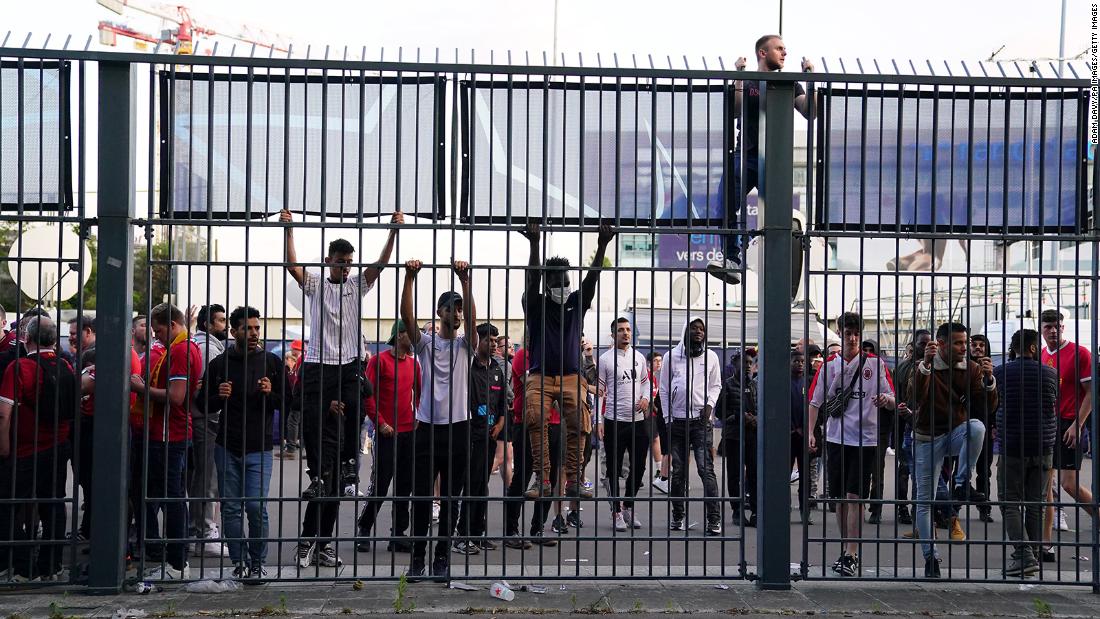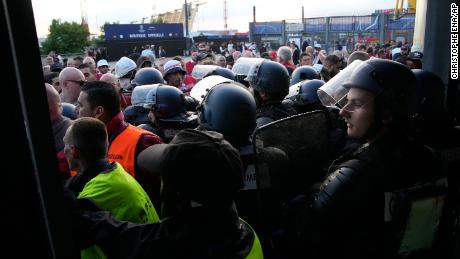
The match itself was delayed by more than 35 minutes after Liverpool fans struggled to enter the Stade de France and tear gas was used by French police towards supporters held in tightly packed areas.
Photos showed fans crammed into fenced areas after a bottleneck formed around a particularly tight entry point at the Liverpool end, while many fans with tickets say they were held back from entering the stadium in dangerously crowded areas and that communication from security was poor.
Both Liverpool and Real Madrid have issued statements detailing instances of violence that their fans endured and called for an investigation to determine who was responsible for the incidents.
During a hearing before the French Senate, Didier expressed his “sincere apologies” to Spanish and English fans who were not welcomed in “safe conditions.”
“People were pushed or assaulted when we owed them safety,” he said, adding that “the image of the country has been shaken.”
Lallement went on to defend the actions of the police, including the use of tear gas.
“It is the only way, to our knowledge, to get a crowd to retreat, apart from charging at them,” he said. “The decisions made were the only way to guarantee the physical integrity of the people and the holding of the match.”
Lallement’s attitude differs from that of Gerald Darmanin, France’s Interior Minister, who apologized for the “disproportionate use” of tear gas by the French police during the final at his hearing in front of the French Senate on June 1.
Lallement reiterated Darmanin’s emphasis on the issue of fake tickets and blamed Liverpool for contributing to the chaos.
“[Liverpool fans] were encouraged by their club to come to Paris in large numbers even without tickets, without us having precise information on the organization at the club level of this trip,” he said.
A blame game has been going on, with different accounts of last weekend’s mayhem coming from UK and French authorities.
Darmanin had previously blamed counterfeit tickets for the delay, claiming there was “a massive, industrial and organized fraud of fake tickets” and that “30,000 to 40,000 English fans … found themselves at the Stade de France either without a ticket or with falsified tickets.” UEFA, the governing body of European football, also said the buildup of fans at turnstiles was caused by fake tickets.
Those figures have been disputed, while UK lawmaker Ian Byrne said attributing crowds and delays to fake tickets was “utter nonsense” and an attempt from French authorities and UEFA to cover their backs.
Last week, UEFA apologized “to all spectators who had to experience or witness frightening and distressing events” in the build up to the match. Additionally, the governing body has set up an independent review to “identify shortcomings and responsibilities of all entities involved in the organisation of the final” with a final report set to appear on UEFA’s website.
